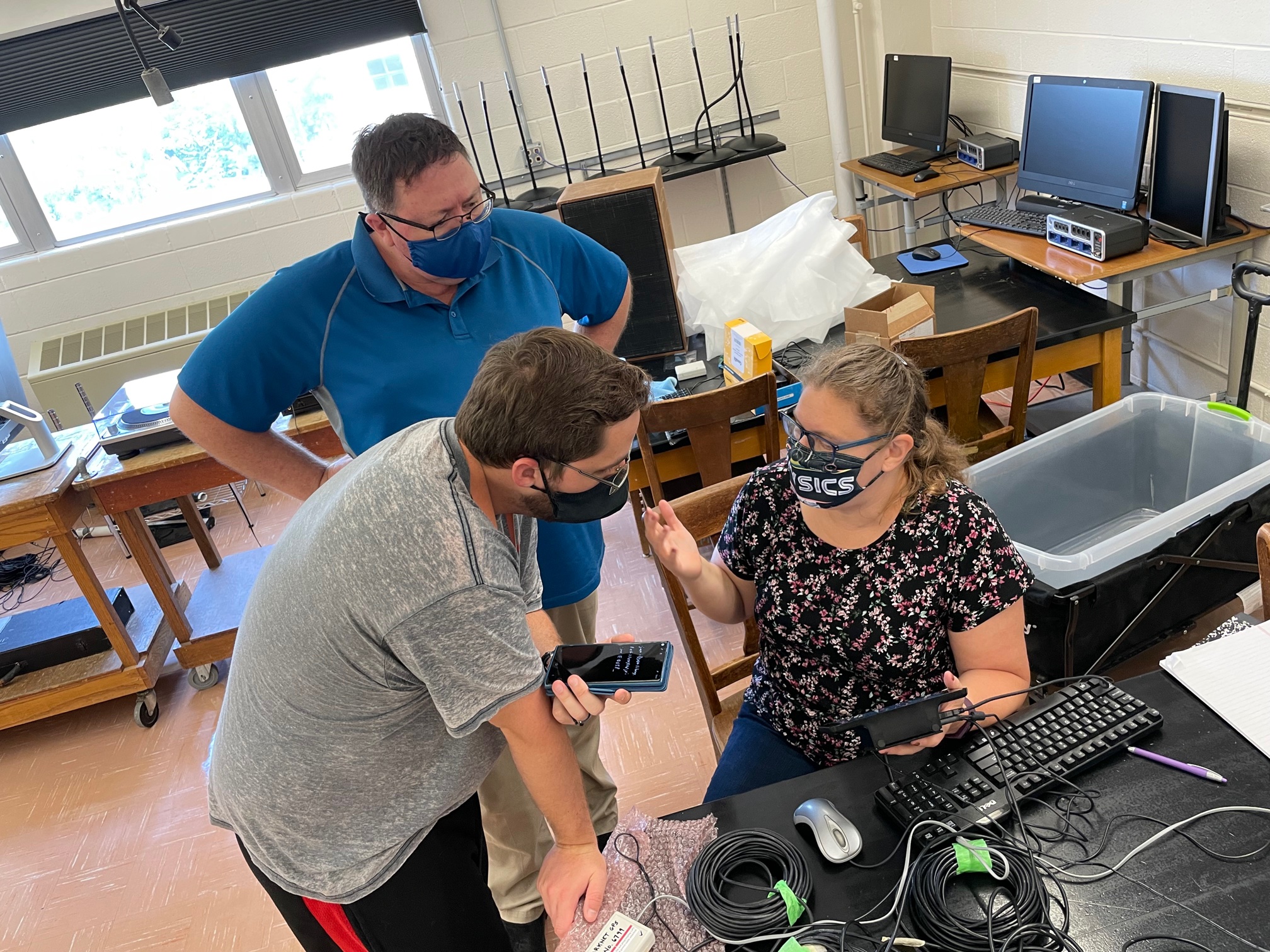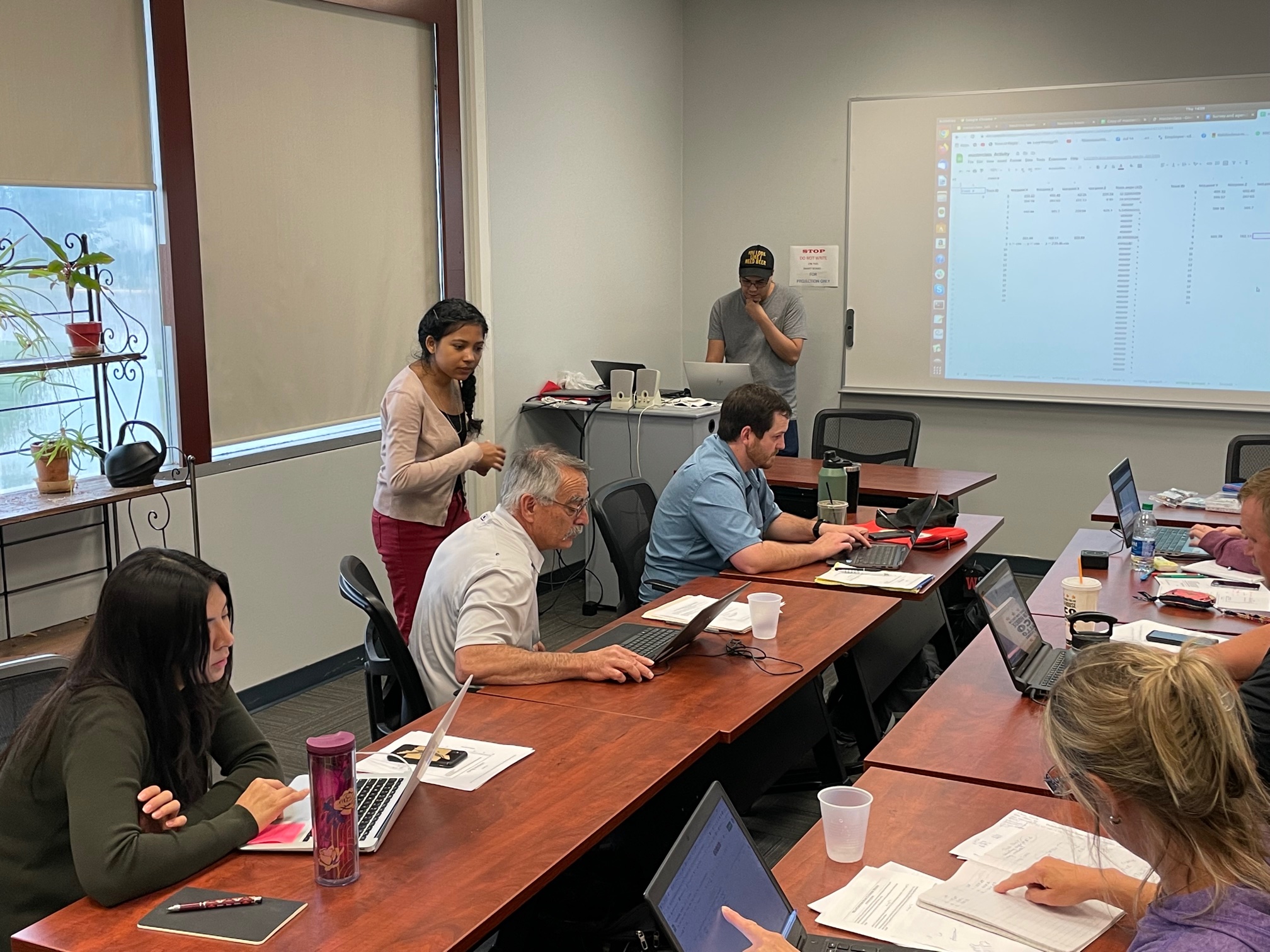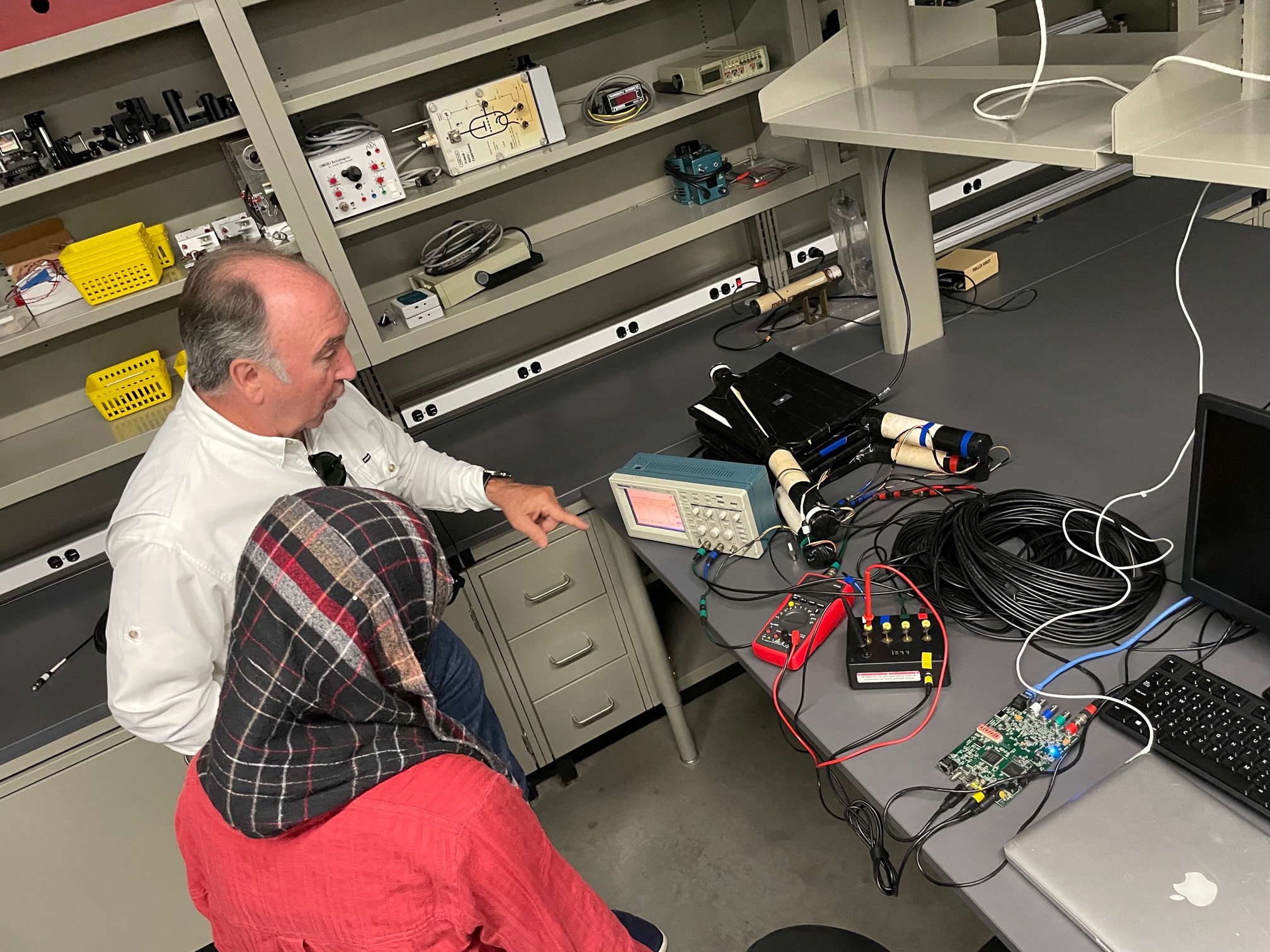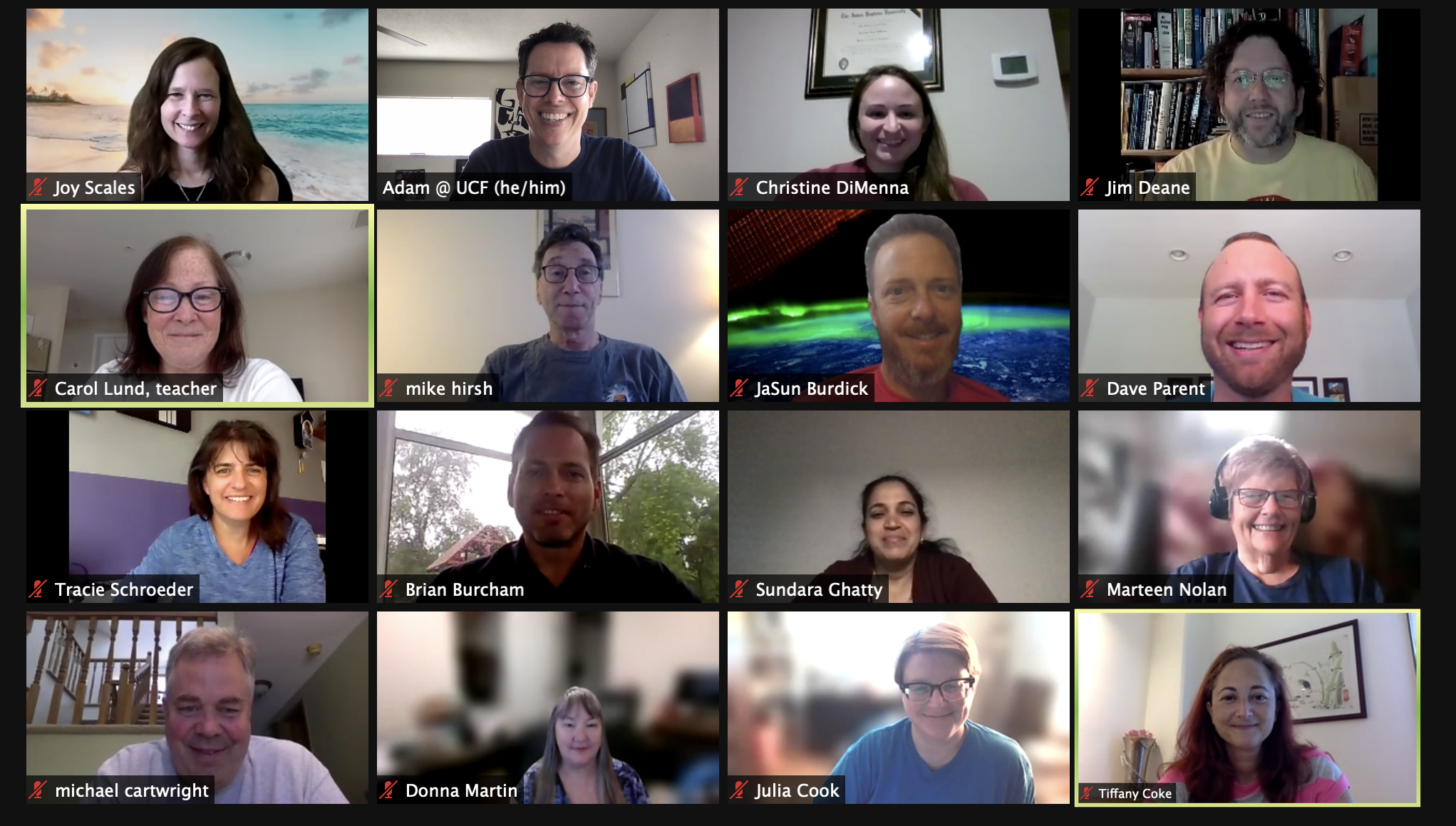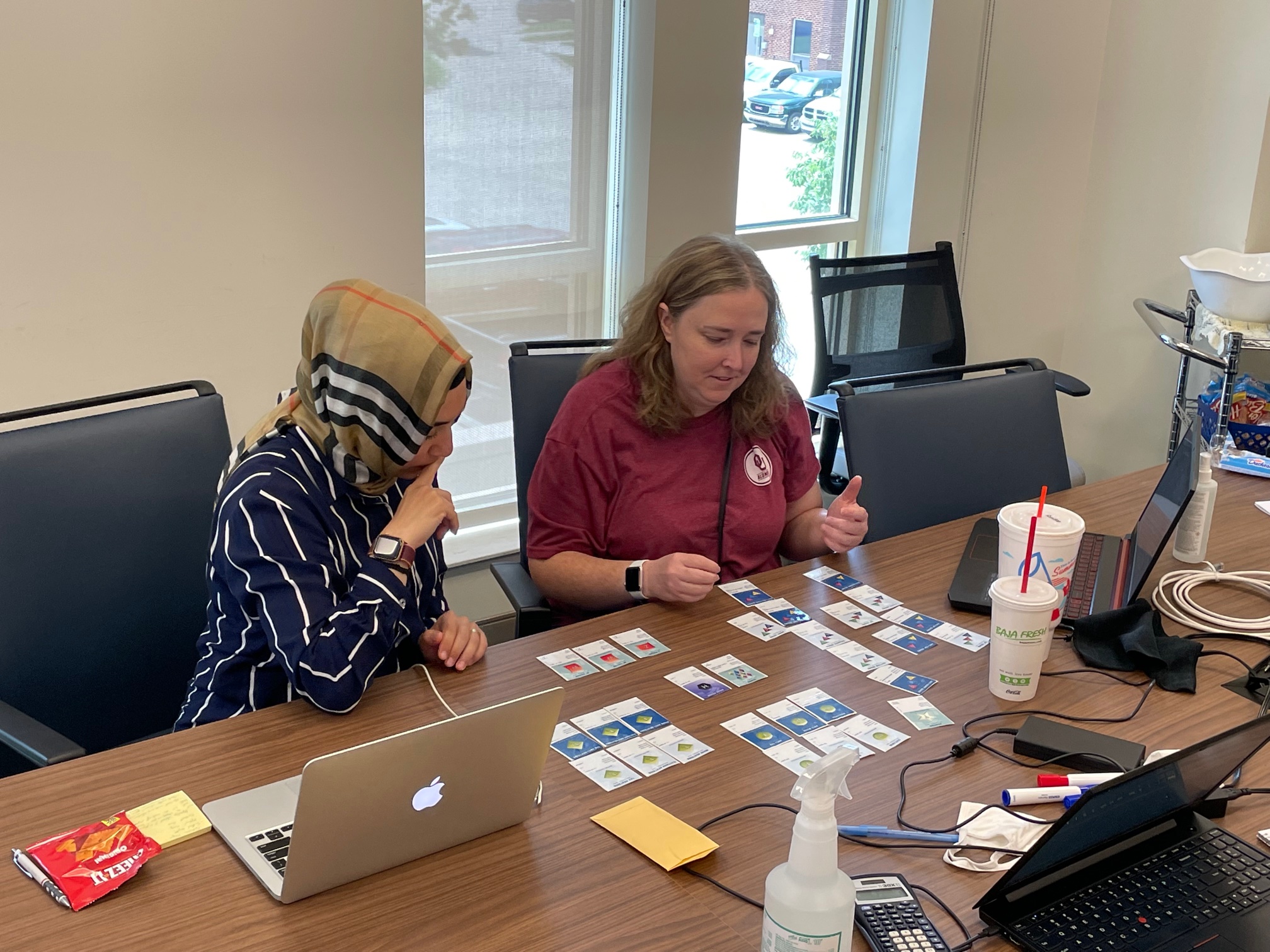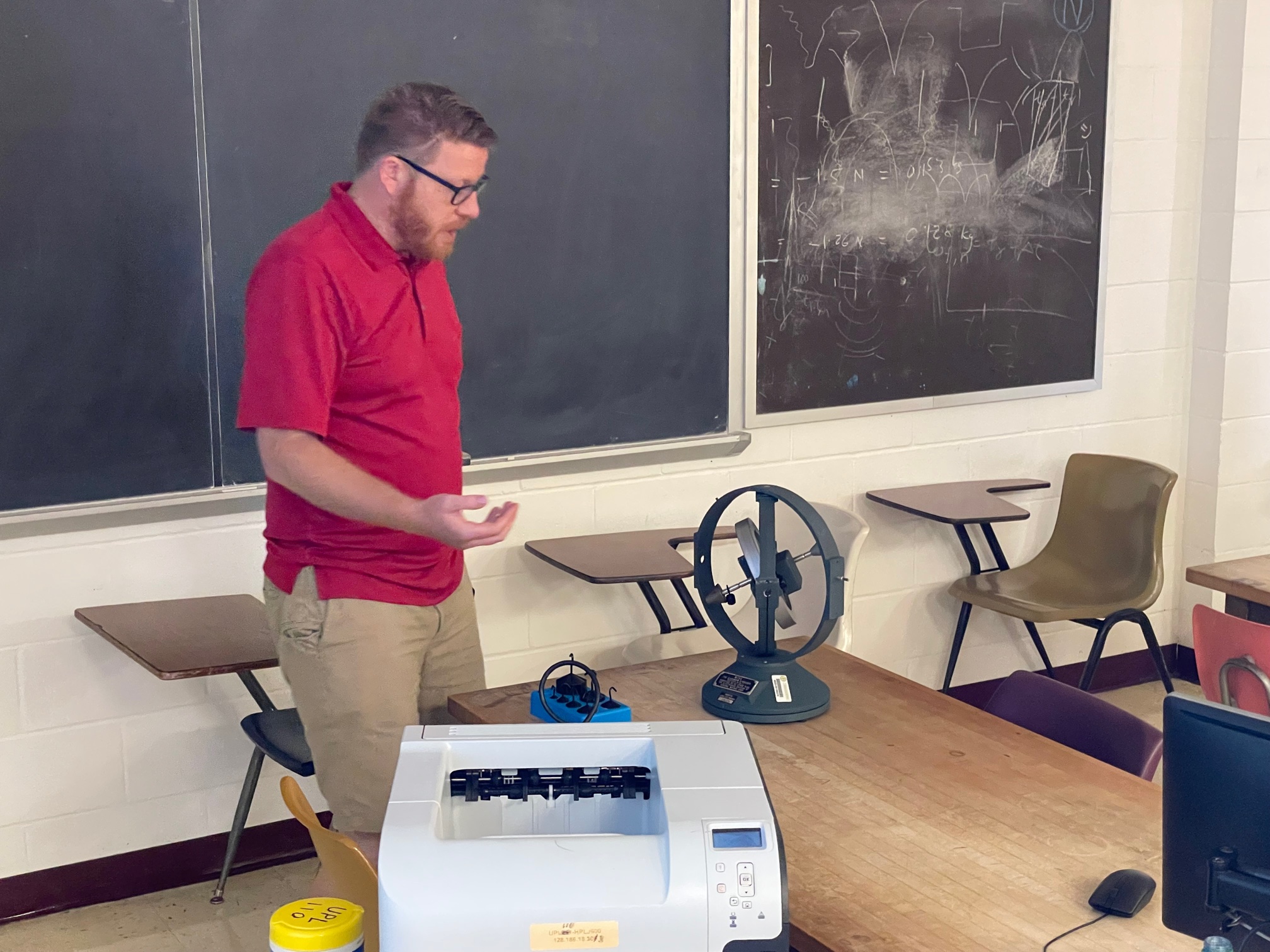Friday Flyer - September 10, 2021
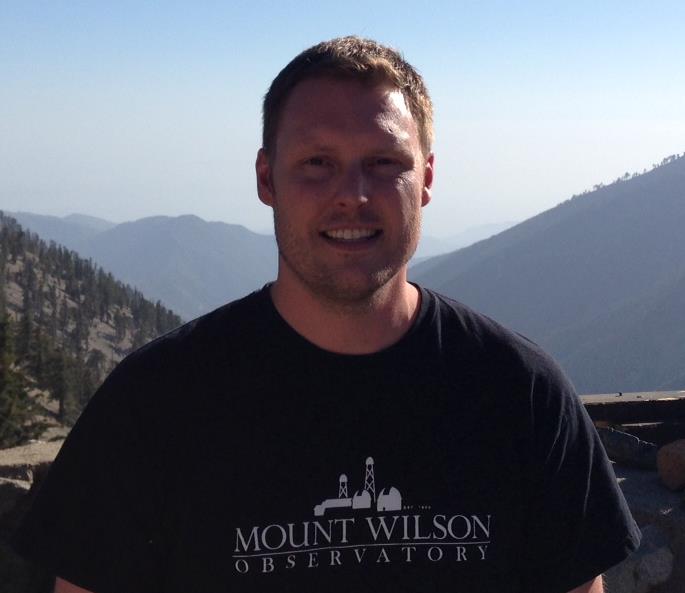
Welcome back to another school year! This is the first Friday Flyer of the 2021-2022 academic year. Expect the Friday Flyer, your one trusted news and information source (aside from the others), to come out every-other Friday (usually!) now through the end of May.

Spotlight on Summer 2021
Even though it is still officially astronomical summer, as educators, many of us now view summer 2021 in the rear view mirror. In this Spotlight, we "reflect" back on summer 2021 as "refracted" through the QuarkNet lens.
While some centers planned a virtual workshop experience again in 2021, many others hosted a face-to-face workshop once again. In addition to many locally-led workshops, QuarkNet staff and fellows worked with mentors and lead teachers to offer a wide variety of national workshops, including a new coding workshop, and coding extensions to existing workshops. The Kansas State and Virginia Centers joined together virtually for part of a day to review the TOTEM experiment and test-pilot a new activity. (This cross-center effort was a success, and could be a useful technique in future workshops.) South Dakota teachers tried out a potential new ProtoDUNE Masterclass measurement based on cosmic data and Minnesota teachers a NOvA Masterclass measurement prototype that highlights neutrino oscillation. Teachers at Idaho State used a "revived" OPAL masterclass measurement because it includes a test of lepton universality, a principle called into question from recent LHCb results. Of course, this is but a sampling of the many workshop experiences at centers this summer.
The coding fellows and teaching & learning fellows led two weeks of Coding Camp via Zoom in June and July with 24 teachers participating between the two weeks. The activities were updated versions of those developed in summer 2020, giving teachers experience with modeling, simulation, and data science.
Mentors and lead teachers . . . if your center has not met this year, it's not too late! For more information, check out the first item (for center leads) in the News from QuarkNet Central section below.

News from QuarkNet Central
Center leads: If you have not done so already, please complete your 2021 annual report as soon as possible. If your center didn't host a workshop this summer, it's not too late! QuarkNet staff has developed a half-day virtual workshop that could be facilitated by QuarkNet fellows or staff focused on the World Wide Data Day measurement. If you have questions, or are interested in this workshop, please contact your QuarkNet staff member.
We are pleased to report that both the CMS e-Lab and Cosmic Ray e-Lab are up and running after some technical issues last spring and early summer. The Cosmic Ray e-Lab is ready for data uploads, so if you have a cosmic ray detector, please get it up and running. Mark Adams and Dave Hoppert are ready to help if you have equipment needing repair, or if you have any questions.
We'd like to announce several dates for some important events coming this fall and beyond.
- QED (QuarkNet Educational Discussions) will begin again next month (October). Stay tuned to upcoming Friday Flyers and the QED page for details as they become available.
- Events surrounding Dark Matter Day take place on or around October 31. Watch for updates on the Dark Matter Day page.
- The tenth annual International Cosmic Day will be on November 10 this year. Check out the ICD website for more information, and here is a poster to help promote the event.
- The sixth ever World Wide Data Day (W2D2) will happen on December 1. Watch for details in future Friday Flyers and on the W2D2 page.
- You know how the old saying goes: "It's never too early to start thinking about International Masterclasses!" The first IMC22 circular is out today with a few early details and date ranges. (Keep in mind the DD.MM.YYYY format for dates listed in the circular.)

Physics Experiment Roundup
The accelerators and detectors at the LHC continue to progress through the maintenance and upgrade work of the LS2 (Long Shutdown 2) this summer, but things are beginning to ramp up: SPS experiments are back and data-taking returns in physics facilities at CERN. Meanwhile, ALICE readies for Run 3, CMS's pixel tracker has been successfully installed and you can watch a recording of the installation of the New Small Wheel in ATLAS that took place in July.
LHC physicists teach an old dog new tricks as they turn their attention toward long-lived particles. Speaking of long-lived particles, the LHCb experiment discovers longest-lived exotic matter yet.
You may recall from last March the announcement regarding the discover of the odderon. Symmetry focuses a bit on the "odd couple" of detectors that made this discovery possible.
On the neutrino front, construction work here in the US continues for the Deep Underground Neutrino Experiment (DUNE). Particle physics is truly a collaborative effort: CERN has agreed to provide the first two of four giant cryostats for DUNE.
Symmetry reports on experiments that could provide clues about dark matter, even though they weren't designed to look for the elusive substance. How about using a nano-scale drum to detect dark matter?

Resources
Some of our trusted sources of videos didn't let summer slow them down. Don Lincoln has three new videos out: amazing ways to look for dark matter, quantum mechanics and the double slit experiment, and the super bizarre quantum eraser experiment. Not to be outdone, Kristy Duffy has three new Even Bananas videos: the solar neutrino problem, a bunch of neutrino question, and how do neutrino oscillations work?
The Physics Girl explores what the new black hole discovery tells us and how mirrors could solve our energy problem.
Physics teacher Marta Stoeckel explains how she creates random groups in her classes.
From symmetry, The search for the sterile neutrino and What is a photon?

Just for Fun
Those of us who have said for years that home coffee preparation, "provides a low-cost, and relatable learning opportunity for students..." can now point to this article from the American Journal of Physics.

LHC physicists often talk about recreating conditions from the early universe. But why??
And finally...Folks at xkcd think they've finally determined the origin and nature of Saturn's polar hexagon. Some things just make sense.
QuarkNet Staff:
Mark Adams: adams@fnal.gov
Ken Cecire: kcecire@nd.edu
Spencer Pasero: spasero@fnal.gov
Shane Wood: swood5@nd.edu
